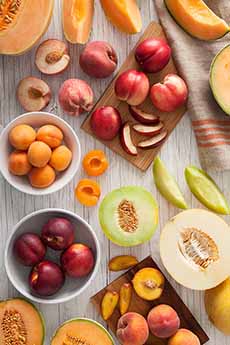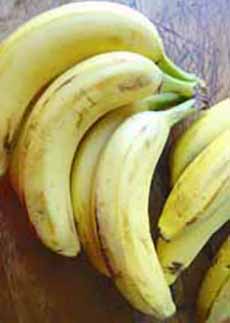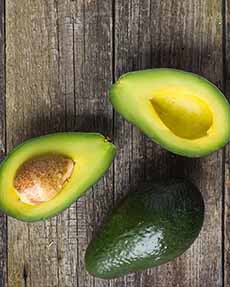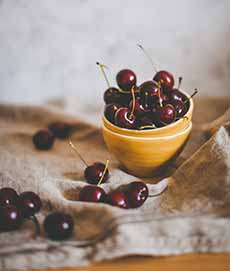TIP OF THE DAY: How To Ripen Fruit
|
|
Some fruits, like berries, cherries, citrus and watermelon, don’t ripen further once picked (see the full list below). So don’t wait for them to get better; they will only decline. But other fruits need to ripen, no matter how much we’d like to bite into them. Here are tricks to speed up the ripening. What if the fruits are ripe but not sweet? Add a bit of sweetener, caloric (sugar, honey, agave, etc.) or non-caloric (artificial sweeteners, stevia, etc.). A restaurant trick for sprucing up boring berries is to place them in a strainer and dip them in a bowl of sugar water. For any fruit that needs to quickly ripen, paper bags are the go-to method. These fruits include avocados, bananas, mangoes, melons (but not watermelon)*, pears, stone fruits† and tomatoes. They give off ethylene, a colorless gas. The bag traps the ethylene inside, and the concentration of ethylene ripens the fruit quickly. For extra help, add a banana to the bag. Bananas are a high producer of ethylene, so adding one to the other fruits will cause them to ripen faster than if it were in the bag by themselves. The riper the banana, the faster it will help to ripen the other fruit. Apples are another producer of ethylene, but less so than bananas. Roll the top of the paper bag to close. Plastic bags are not recommended, because they concentrate moisture and heat that can encourage mold. If you don’t have a paper bag but you do have rice, a rice bath is an option. It can be used for fruits with inedible skins: avocados, bananas, mangoes, melons, papayas. Uncooked rice—white or brown—traps ethylene gas effectively and ripens fruits with hard (inedible) skins. Use a bowl or other container large enough to hold the fruit, and cover it completely with rice. You do not need to cover the rice itself. If your fruit isn’t ripened within two days, check it once or twice on subsequent days, so it doesn’t over-ripen. You can re-use the rice for cooking—or for more ripening. Our great-grandmother’s trick for ripening peaches, nectarines and apricots, was to spread them on a tea towel, topped with another tea towel. The fruits should not be touching. While the towels trap some ethylene, the paper bag method with an apple or banana works best. These fruits may soften after picking, but don’t confuse that with ripening. The flavor doesn’t improve. After they’re picked these fruits begin to break down, which ultimately leads to rot. |
|
|
________________ *Watermelons develop a creamy yellow splotch on the bottom, where they have rested on the ground. This means it’s ripe, and farmers tend to pick them when the splotch appears. You can also give the underbelly a thump with your hand. A ripe melon will have a deep, hollow sound. †Yes, avocados are a fruit—a tree fruit. Stone fruits include apricot, cherry, nectarine, peach, plum and hybrids like apriums, plumcots and pluots. However, cherries are picked when they are already ripe, and do not require further ripening—just stick them in the fridge. Here’s more about stone fruits. |
||



